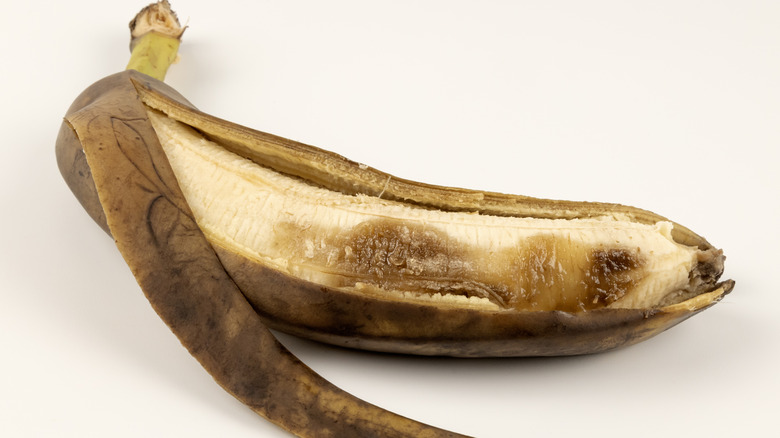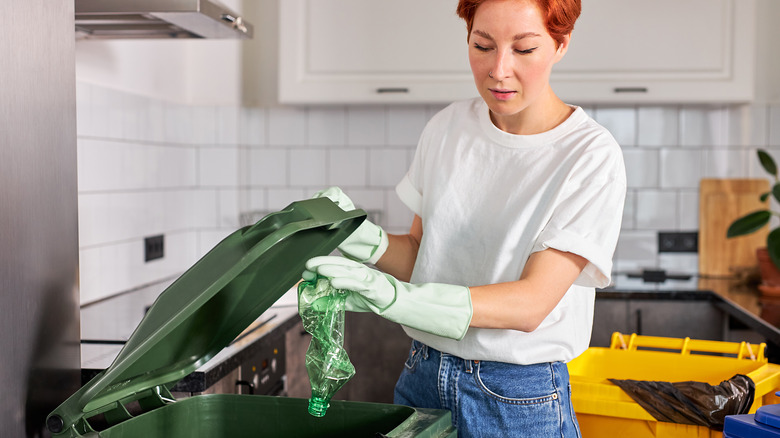
You’re relaxing at home in your favorite chair, scrolling through your social media feed. Out of the corner of your eye, you notice something small and black darting near your face. You pause, attributing it to eye strain from excessive gadget use. However, within seconds, you realize you’re actually dealing with a fast-flying, pint-sized annoyance — one that can quickly multiply inside your home if left unchecked.
Fruit flies (Drosophila melanogaster) are the bane of many housekeepers or restaurant staff. Small enough to be difficult to eliminate and often a persistent issue due to their impressive reproductive abilities (up to 500 eggs at a time), these unwelcome guests are often referred to by unflattering names such as banana flies, vinegar flies, vinegar gnats, and sour flies.
These unflattering nicknames provide a clue as to where these potential disease carriers prefer to reside and lay eggs. Fruit flies are attracted to decaying, rotting, or pungent smells and are drawn to fruits and vegetables that are already spoiling. These food items serve as both a nesting place and a food source for newly hatched fruit fly maggots. Additionally, if you have a habit of leaving uncovered glasses of juice or wine, beer bottles, or vinegar containers around, you’re likely to attract these pests as well.
What happens if you accidentally ingest fruit fly eggs?

Many cooking and baking enthusiasts have found ways to repurpose otherwise unappetizing food items as ingredients. But now that you know these foods are fruit fly favorites, a new question may arise: What happens if you ingest fruit or vegetables with (ick) fruit fly eggs? Is it safe to eat overripe bananas and other fruits?
While the idea is undoubtedly repulsive, it’s not an immediately life-threatening situation. Realistically, you can expect typical symptoms from eating spoiled food, such as nausea, vomiting, and abdominal pain. A bacterial infection or allergic reaction is also possible, both of which can be dangerous. A particularly perilous, but rare, possibility is myiasis — when fruit fly eggs survive your digestive acids long enough to hatch into larvae, take residence inside your body, and start consuming your organ tissue, which may lead to abdominal pain, diarrhea, and vomiting.
However, timely medical intervention can help you recover quickly and prevent further complications, so seek medical attention as soon as you suspect an issue with the food you consumed.
How to rid your home of fruit flies

The best way to prevent the accidental consumption of fruit fly eggs is to stop fruit flies from multiplying in your home initially. Avoid leaving food and drinks uncovered for long periods, keep your kitchen and bathroom drains clean and unclogged (as fruit flies are attracted to food particles and residue stuck there).
Additionally, watch for signs that foods aren’t safe to eat, so you can remove them from your home, preventing them from becoming a hotspot for fruit flies. (By the way, here’s a list of foods you should never eat past their expiration date.) Make it a habit to regularly and promptly take out the trash.
If you find a fruit fly problem in your home, don’t worry. A simple and time-tested (albeit unpleasant-smelling) DIY solution is to fill a jar or cup with apple cider vinegar or water with yeast and a dash of sugar, cover it with a plastic lid with tiny toothpick-sized holes, and leave it where you want to attract the fruit flies. The smell will lure them in, but they won’t be able to escape, and they (and any eggs they lay) will remain trapped until they (literally) drop like flies.




